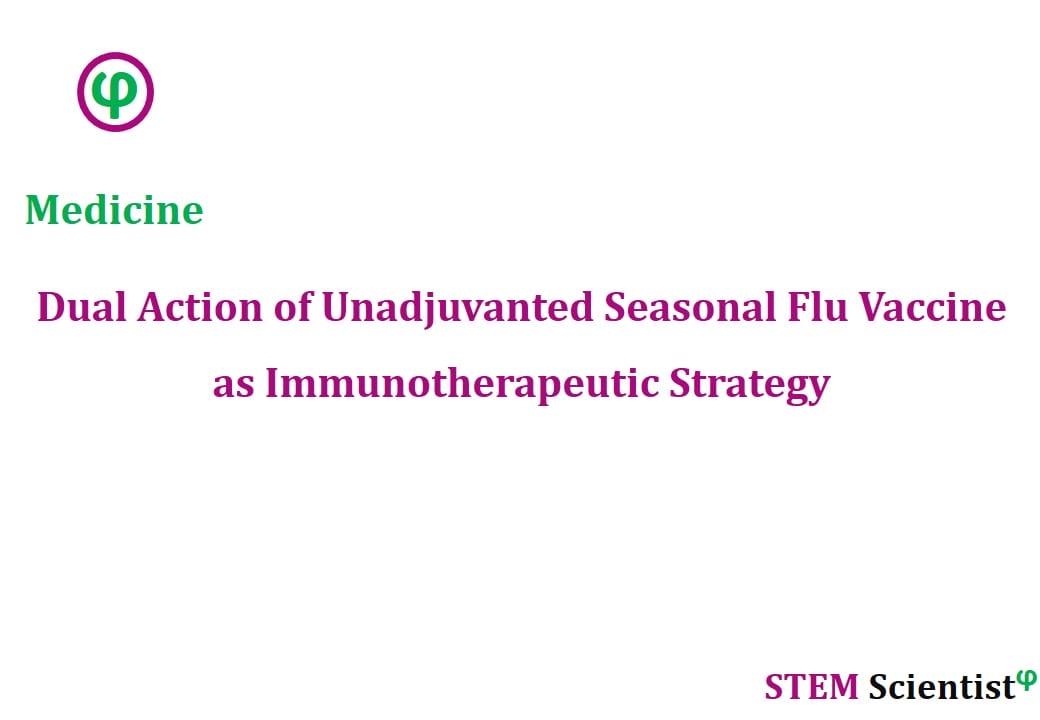
The following study was conducted by Scientists from The State University of New Jersey, New Brunswick; Rush University Medical Center, Chicago; Columbia University Irving Medical Center, New York; Vanderbilt University Medical Center, Nashville; Ohio State University, Columbus; Massachusetts General Hospital, Boston; Replimune, Inc, USA; University of Tennessee Health Science; Massachusetts Institute of Technology; Harvard Medical School; Washington University; Dana–Farber Cancer Institute, Boston, USA.
Scientists developed a unadjuvanted seasonal influenza vaccination strategy administered through intratumoral delivery towards an effort to design multi-action immunotherapeutic regime. These multi-factorial antipathogenic vaccines can have a combinatorial impact for prevention of infections and also antitumor immunotherapies.
Proceedings of the National Academy of Sciences – December 2019.
Intratumoral Injection of the Seasonal Flu Shot Converts Immunologically Cold Tumors to Hot and Serves as an Immunotherapy for Cancer
Abstract
Reprogramming the tumor microenvironment to increase immune-mediated responses is currently of intense interest. Patients with immune-infiltrated “hot” tumors demonstrate higher treatment response rates and improved survival. However, only the minority of tumors are hot, and a limited proportion of patients benefit from immunotherapies. Innovative approaches that make tumors hot can have immediate impact particularly if they repurpose drugs with additional cancer-unrelated benefits. The seasonal influenza vaccine is recommended for all persons over 6 mo without prohibitive contraindications, including most cancer patients. Here, we report that unadjuvanted seasonal influenza vaccination via intratumoral, but not intramuscular, injection converts “cold” tumors to hot, generates systemic CD8+ T cell-mediated antitumor immunity, and sensitizes resistant tumors to checkpoint blockade. Importantly, intratumoral vaccination also provides protection against subsequent active influenza virus lung infection. Surprisingly, a squalene-based adjuvanted vaccine maintains intratumoral regulatory B cells and fails to improve antitumor responses, even while protecting against active influenza virus lung infection. Adjuvant removal, B cell depletion, or IL-10 blockade recovers its antitumor effectiveness. Our findings propose that antipathogen vaccines may be utilized for both infection prevention and repurposing as a cancer immunotherapy.
Source:
Proceedings of the National Academy of Sciences.
URL: https://www.pnas.org/content/early/2019/12/26/1904022116
Citation:
Newman, J. H., C. B. Chesson, et al. (2019). “Intratumoral injection of the seasonal flu shot converts immunologically cold tumors to hot and serves as an immunotherapy for cancer.” Proceedings of the National Academy of Sciences: 201904022. https://doi.org/10.1073/pnas.1904022116.


